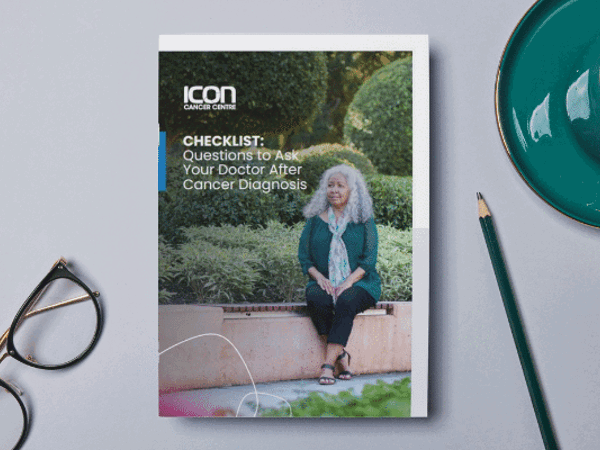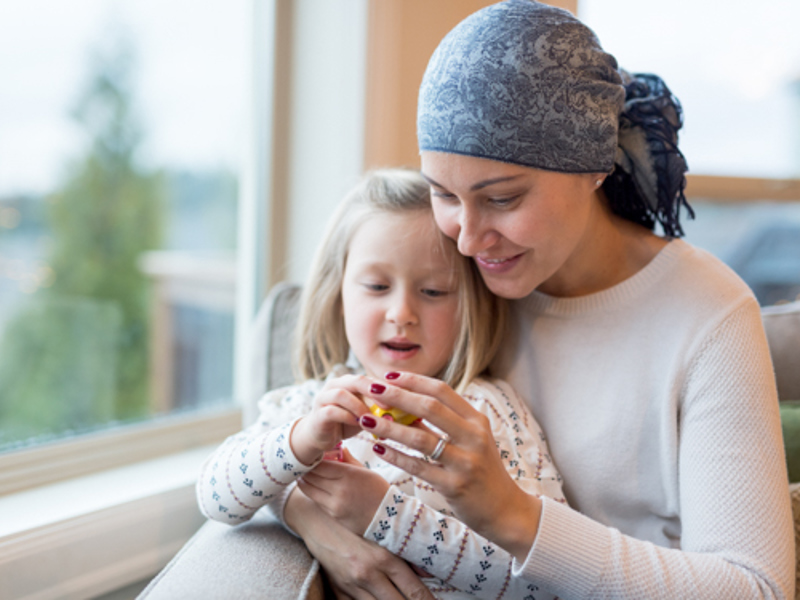
Everything you need to know about scalp cooling
Many patients even say it’s the hardest part about receiving a cancer diagnosis. If you’re still trying to process the news yourself, you may not want to rush into this conversation.
On top of the range of emotions you’re likely to be dealing with, you’re also probably trying to gather and understand a whole raft of information about your cancer and considering your different treatment options.
However, depending on your diagnosis and personal situation, there may be some practical reasons to tell your family earlier than you think. For example, you may want someone to be with you during appointments to help you understand and gather all the facts. You may need help with transport, childcare or other tasks while you’re getting treatment. And if surgery is needed, you might need help at home as you may need to stay in the hospital for a few days.
You might feel like you want to tell everyone at once, or maybe you want to start with just one or two people. Some people decide not to tell anyone but their closest family members at first.
Choose a time when you’re feeling strong and most likely to be able to talk about it calmly. You might want to practice what you’re going to say beforehand, so you know how much detail you want to go into.
Pick a time when everyone is together — such as a mealtime — so that you don’t have to repeat yourself each time.
If it feels right, talk about how you feel as well as what’s happening with your health. Being honest about your feelings helps people know how they can best support you during this time.
Be prepared for mixed reactions. Not everyone will know how to react or what to say.
Be more informed and play an active role in your own cancer care.

Cancer is a very personal experience, and people have different levels of comfort about sharing personal health information with colleagues. You might consider how much you share about your cancer and how you would like to answer questions from concerned colleagues.
Even if you decide not to tell anyone about your cancer diagnosis, you can still get advice, counselling, financial or practical help from a number of different cancer support services. If you would like help, please reach out to your Icon care team who can help you find services in your local area.
Telling young children about a cancer diagnosis can be especially challenging. They may worry that their parent or grandparent won’t recover or that they will get sick too. Cancer Council of Australia has developed an information booklet on Talking to Kids About Cancer that can help.

Hardest thing to do, just keep it simple and honest. Be truthful and don’t hide anything.
Learn as much as you can first and then tell family. That way you can give as much info as possible. Helped with my kids.
Being open and honest and raw with loved ones. We cried together, laughed together and nothing was off the table. We addressed everything and anything. There would never be an elephant in the room.
It was very difficult but I put myself together and I told them. They were very supportive and full of love and understanding.
It was really hard to tell my adult kids, but honesty is the only way because they need the facts to understand what's happening. They're part of your village and you will need them for strength, you just don't know it yet.
My cancer was found while having a routine check for something else, so I was so shocked I just couldn’t hide that something was wrong. So I sat family down and explained what I knew at the time. Since then I have involved them in every appointment, treatment, surgery etc. I feel the more they know and involved the more prepared they are.
We were very upfront with everyone about my hubby's cancer. We wanted to increase awareness of the occurrence and to make sure that others are having precautionary testing on a regular basis. Early detection is a life saver.
The content on the Icon Cancer Centre website is for informational purposes only and should not be considered medical advice. It is not a substitute for consultation with a qualified medical practitioner. For personalised medical guidance, please consult with your GP or another qualified healthcare provider.

Discover our comprehensive collection of content designed to inform, support, and guide you through every aspect of cancer care. From the latest news and updates to personal patient experiences and educational resources, these materials provide valuable insights to help you better understand cancer, treatment options, and the journey ahead.